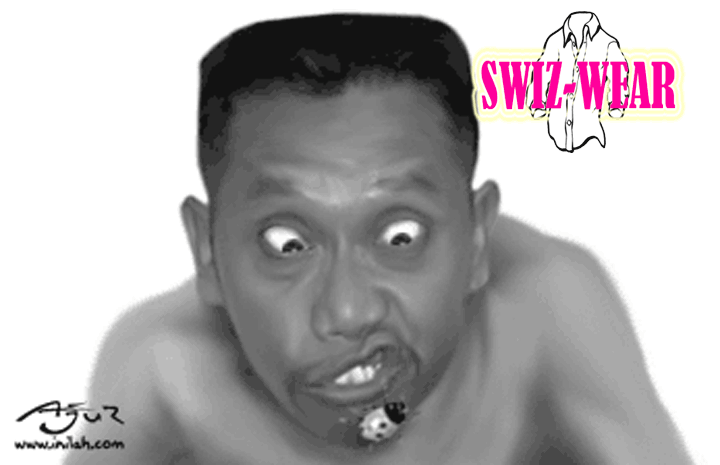
Barack Hussein Obama, Jr.
(1961-)
Quick Facts
o Born: August 4, 1961 (Hawaii)
o Lives in: Chicago, Illinois
o Zodiac Sign: Leo
Related Works
" Books
"
o 1995 Dreams From My Father: A Story of Race and Inheritance
o 2006 The Audacity of Hope: Thoughts on Reclaiming the American Dream
o 2006 It Takes a Nation: How Strangers Became Family in the Wake of Hurricane Katrina
January 25, 2010
U.S. President Barack Obama proposed a package of new initiatives on Monday, aimed at helping middle-class families. The measures were developed by the White House Task Force on Middle Class Families, which is led by Vice President Joseph Biden. "There are immediate steps we can take to reduce the strain on family budgets by helping middle class families manage their child and elder care responsibilities, save for retirement, and pay for college," the White House said in a statement.
continue reading…
44th of the United States. Born Barack Hussein Obama on August 4, 1961, in Honolulu, Hawaii. Obama's mother, Ann Dunham, grew up in Wichita, Kansas. Her father worked on oil rigs during the Depression. After the Japanese attack on Pearl Harbor, he signed up for service in World War II and marched across Europe in Patton's army. Dunham's mother went to work on a bomber assembly line. After the war, they studied on the G.I. Bill, bought a house through the Federal Housing Program, and moved to Hawaii.
His father, Barack Obama, Sr., was born of Luo ethnicity in Nyanza Province, Kenya. The elder Obama grew up herding goats in Africa, eventually earning a scholarship that allowed him to leave Kenya and pursue his dreams of college in Hawaii. While studying at the University of Hawaii in Manoa, Obama, Sr. met fellow student, Anne Dunham. They married on February 2, 1961. Barack was born six months later.
Obama's parents separated when he was two years old, and later divorced. Obama's father went on to Harvard to pursue Ph.D. studies, and then returned to Kenya. His mother married Lolo Soetoro, another East-West Center student from Indonesia. In 1967, the family moved to Jakarta, where Obama's half-sister Maya Soetoro Ng was born. Obama attended schools in Jakarta, where classes were taught in the Indonesian language.
Afraid for his safety and his education, Barack's mother sent him back to Hawaii when he was 10 years old, to live with his maternal grandparents Madelyn and Stanley Dunham. His mother and sister later joined them.
Obama was enrolled in the fifth grade at the esteemed Punahou Academy, excelling in basketball and graduating with academic honors in 1979. As one of only three black students at the school, Obama became conscious of racism and what it meant to be an African-American. He later described how he struggled to reconcile social perceptions of his multiracial heritage. "I began to notice there was nobody like me in the Sears, Roebuck Christmas catalog...and that Santa was a white man," he said. "I went to the bathroom and stood in front of the mirror with all my senses and limbs seemingly intact, looking the way I had always looked, and wondered if something was wrong with me."
Obama also struggled with the absence of his father, who he saw only once more after his parents divorced, in a brief 1971 visit. "[My father] had left paradise, and nothing that my mother or grandparents told me could obviate that single, unassailable fact," he later reflected. "They couldn't describe what it might have been like had he stayed." Obama, Sr. eventually lost his legs in an automobile accident, also losing his job as a result. In 1982, he died in another car accident in Nairobi. Obama, Jr. was 22 years old when he received the news of his father's passing. "At the time of his death, my father remained a myth to me," Obama later said, "both more and less than a man.
Barack Hussein Obama, Jr.
After high school, Obama studied at Occidental College in Los Angeles for two years. He then transferred to Columbia University in New York, graduating in 1983 with a degree in political science. In 1985, after working in the business sector for two years, Obama moved to Chicago. There, he worked on the South Side as a community organizer for low-income residents in the Roseland and the Altgeld Gardens communities.
It was during this time that Obama, who said he "was not raised in a religious household," joined the Trinity United Church of Christ. He also visited relatives in Kenya, which included an emotional visit to the graves of his biological father and paternal grandfather. "For a long time I sat between the two graves and wept," Obama said. "I saw that my life in America-the black life, the white life, the sense of abandonment I felt as a boy, the frustration and hope I'd witnessed in Chicago-all of it was connected with this small plot of earth an ocean away."
Obama returned from Kenya with a sense of renewal, entering Harvard Law School in 1988. The next year, he met Michelle Robinson, an associate at Sidley & Austin law firm in Chicago. She was assigned to be Obama's adviser during a summer internship at the firm, and soon the couple began dating. In February 1990, Obama was elected the first African-American editor of the Harvard Law Review, and he graduated magna cum laude in 1991.
After law school, Obama returned to Chicago to practice as a civil rights lawyer, joining the firm of Miner, Barnhill & Galland. He also taught at the University of Chicago Law School, and helped organize voter registration drives during Bill Clinton's1992 presidential campaign. On October 3, 1992, he and Michelle were married. They moved to Kenwood, on Chicago's South Side, and welcomed two daughters: Malia (born 1998) and Sasha (born 2001).
Obama published his autobiography in 1995 Dreams From My Father: A Story of Race and Inheritance. The work received high praise from critics and authors such as Toni Morrison and has since been printed in ten languages, including Chinese, Swedish and Hebrew. The book had a second printing in 2004, and is currently being adapted into a children's version. The 2006 audiobook version of Dreams, which was narrated by Obama, received a Grammy award for Best Spoken Word Album.
Obama's advocacy work led him to run for the Illinois State Senate as a Democrat. He was elected in 1996. During these years, Obama worked with both Democrats and Republicans in drafting legislation on ethics, expanded health care services, and early childhood education programs for the poor. He also created a state earned-income tax credit for the working poor. Obama became chairman of the Illinois Senate's Health and Human Services Committee as well, and after a number of inmates on death row were found innocent, he worked with law enforcement officials to require the videotaping of interrogations and confessions in all capital cases.
Barack Hussein Obama, Jr.
In 2000, Obama made an unsuccessful Democratic primary run for the U. S. House of Representatives seat held by four-term incumbent candidate Bobby Rush. Undeterred, Obama created a campaign committee in 2002, and began raising funds to run in the 2004 U.S. Senate Race. With the help of political consultant David Axelrod, Obama began assessing his prospects of a Senate win.
Following the 9/11 attacks in 2001, Obama was an early opponent of President George W. Bush's push to war with Iraq. Obama was still a state senator when he spoke against a resolution authorizing the use of force against Iraq during a rally at Chicago's Federal Plaza in October 2002. "I am not opposed to all wars. I'm opposed to dumb wars," he said. "What I am opposed to is the cynical attempt by Richard Perle and Paul Wolfowitz and other arm-chair, weekend warriors in this Administration to shove their own ideological agendas down our throats, irrespective of the costs in lives lost and in hardships borne." Despite his protests, the war with Iraq began in 2003.
Obama, encouraged by poll numbers, decided to run for the U.S. Senate open seat vacated by Republican Peter Fitzgerald. In the 2004 Democratic primary, he won 52 percent of the vote, defeating multimillionaire businessman Blair Hull and Illinois Comptroller Daniel Hynes. That summer, he was invited to deliver the keynote speech in support of John Kerry at the 2004 Democratic National Convention in Boston. Obama emphasized the importance of unity, and made veiled jabs at the Bush administration and the diversionary use of wedge issues.
After the convention, Obama returned to his U.S. Senate bid in Illinois. His opponent in the general election was supposed to be Republican primary winner Jack Ryan, a wealthy former investment banker. However, Ryan withdrew from the race in June 2004, following public disclosure of unsubstantiated sexual allegations by Ryan's ex-wife, actress Jeri Ryan.
In August 2004, diplomat and former presidential candidate Alan Keyes, who was also an African-American, accepted the Republican nomination to replace Ryan. In three televised debates, Obama and Keyes expressed opposing views on stem cell research, abortion, gun control, school vouchers and tax cuts.
In the November 2004 general election, Obama received 70 percent of the vote to Keyes's 27 percent, the largest electoral victory in Illinois history. With his win, Barack Obama became only the third African-American elected to the U.S. Senate since the Reconstruction.
Sworn into office January 4, 2005, Obama partnered with Republican Sen. Richard Lugar of Indiana on a bill that expanded efforts to destroy weapons of mass destruction in Eastern Europe and Russia. Then, with Republican Sen. Tom Corburn of Oklahoma, he created a website that tracks all federal spending. Obama also spoke out for victims of Hurricane Katrina, pushed for alternative energy development and championed improved veterans' benefits.
Barack Hussein Obama, Jr.
His second book, The Audacity of Hope: Thoughts on Reclaiming the American Dream, was published in October 2006. The work discussed Obama's visions for the future of America, many of which became talking points for his eventual presidential campaign. Shortly after its release, it hit No. 1 on both the New York Times and Amazon.com bestsellers lists.
In February 2007, Obama made headlines when he announced his candidacy for the 2008 Democratic presidential nomination. He was locked in a tight battle with former first lady and then-U.S. Senator from New York, Hillary Rodham Clinton until he became the presumptive nominee on June 3, 2008. On November 4th, 2008, Barack Obama defeated Republican presidential nominee John McCain for the position of U.S. President, 52.9 percent to 45.7 percent. On January 20, 2009, Obama became the 44th president of the United States-and the first African-American to hold this office.
Perhaps unfairly, the first 100 days in office have been considered a harbinger of a president's success or failure. When Obama took office, he inherited a global economic recession; two on-going foreign wars; and the lowest international favorability rating for the United States ever. He campaigned on an ambitious agenda of financial reform, alternative energy, and reinventing education and health care-all while bringing down the national debt. Because these issues were intertwined with the economic well-being of the nation, he believed all would have to be undertaken simultaneously. During his inauguration speech, Obama summarized the situation by saying, "Today I say to you that the challenges we face are real. They are serious and they are many. They will not be met easily or in a short span of time. But know this, America: They will be met."
Between Inauguration Day and April 29, the administration took to the field on many fronts. Obama coaxed Congress to expand health care insurance for children and provide legal protection for women seeking equal pay. A $787 billion stimulus bill was passed to promote short-term economic growth. Housing and credit markets were put on life-support, with a market-based plan to buy U.S. banks' toxic assets. Loans were made to the auto industry, and new regulations were proposed for Wall Street. He also cut taxes for working families, small businesses and first-time home buyers. The president also loosened the ban on embryonic stem cell research and moved ahead with a $3.5 trillion budget plan.
During his first 100 days, President Obama also undertook a complete overhaul of America's foreign policy. He reached out to improve relations with Europe, China, Russia and open dialogue with Iran, Venezuela, and Cuba. He lobbied allies to support a global economic stimulus package. He committed an additional 21,000 troops to Afghanistan and set an August 2010 date for withdrawal of U.S. troops from Iraq. In more dramatic incidents, he took on pirates off the coast of Somalia and prepared the nation for an attack of the Swine Flu. For his efforts, he was awarded the 2009 Nobel Peace Prize by the Norwegian Nobel Committee.
On January 27, 2010, President Obama delivered his first State of the Union speech. During his oration, Obama addressed the challenges of the economy, proposing a fee for larger banks, announcing a possible freeze on government spending in 2010, and speaking against the Supreme Court's reversal of a law capping campaign finance spending. He also challenged politicians to stop thinking of re-election and start making positive changes, critisizing Republicans for their refusal to support any legislation, and chastizing Democrats for not pushing hard enough to get legislation passed. He also insisted that, despite current obstacles, he was determined to help American citizens through the nation's current domestic difficulties. "We don't quit. I don't quit," he said. "Let's sieze this moment to start anew, to carry the dream forward, and strengthen our union once more."
© 2010 A&E Television Networks. All rights reserved.
Barack Hussein Obama, Jr.





No comments:
Post a Comment